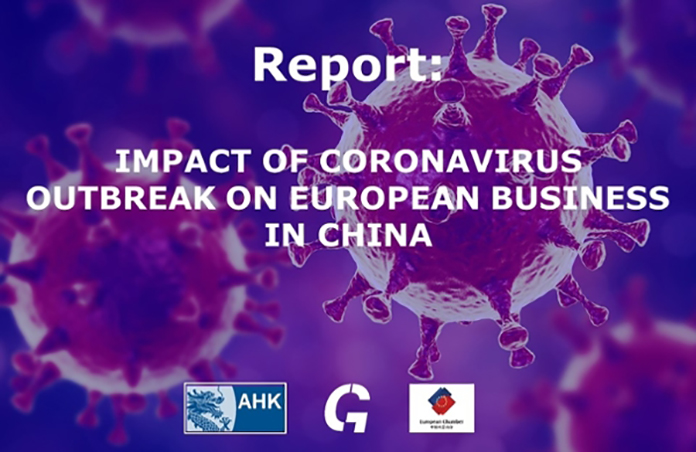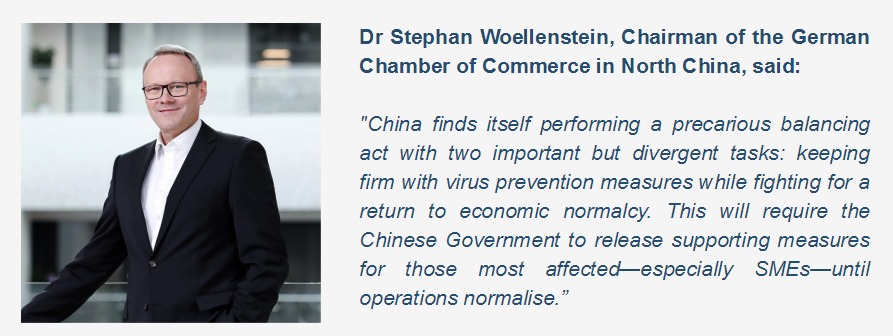
The German Chamber of Commerce in China (German Chamber) and the European Union Chamber of Commerce in China (European Chamber) today released details of a joint survey on the effects of COVID-19 on European business in China.
Between 18th and 21st February 2020, a total of 577 member companies of the German Chamber of Commerce in China and the European Union Chamber of Commerce in China participated in the chambers joint flash survey on the impact of the Coronavirus outbreak on European business in China.
The results show that the impact has been severe overall, with every single survey respondent suffering the consequences to varying degrees, and being subject to restrictions and often conflicting regulations. Many companies that have been permitted to reopen lack the necessary inputs/staff to resume full operations, the customers to buy their goods/services or the means to move goods and people to meet demand.
KEY FINDINGS
– Almost 90% of respondents report a medium to high impact, while half plan to lower annual business targets.
– Nearly half of respondents forecast a double-digit drop in revenues for the first half of 2020, and a quarter expect to see a drop of over 20 per cent.
– Major challenges include unpredictable rules, highly restrictive quarantine demands and extensive pre-conditions to restart operations.
– Half of respondents face inconsistent rules applied across different jurisdictions and at different levels of government, which can frequently change, often at short notice. For example, deliveries can be subject to multiple onerous restrictions when passing through provinces, cities and even districts.
– More than 300 European companies are actively supporting efforts to contain the COVID-19 outbreak, and around 70% have donated medical equipment to crisis regions, contributed financially to the fight against the virus, and supported logistically.


News Source:
https://china.ahk.de/news/news-details/covid-19-severely-impacting-business-trade-associations-call-for-proportionate-measures-to-get-real-economy-back-on-track





